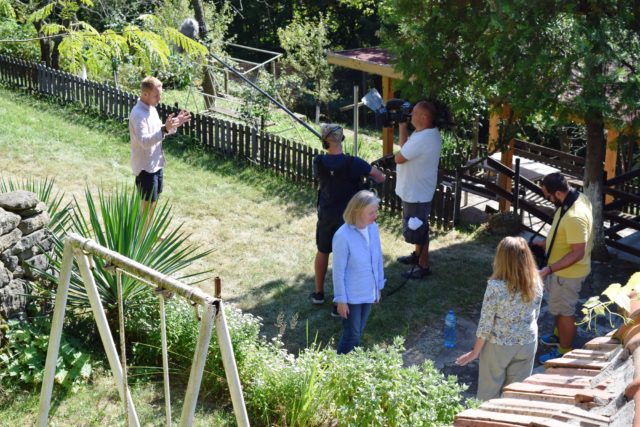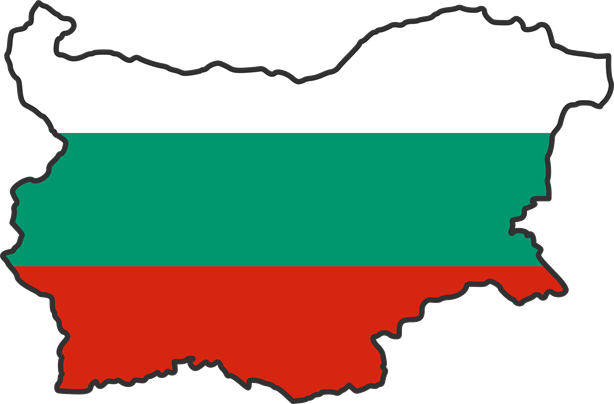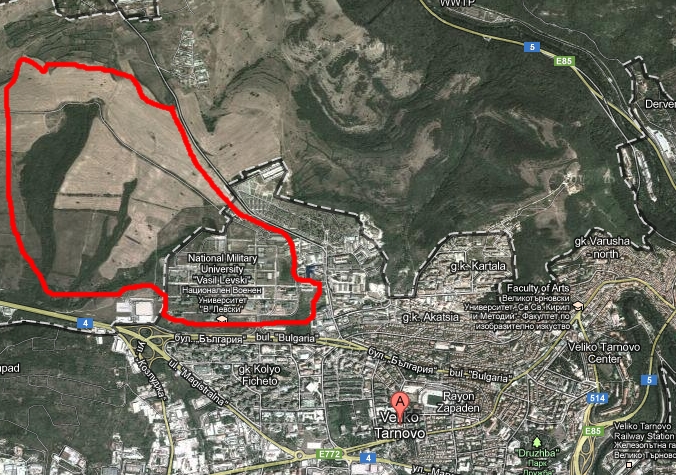If you want to learn which the agency is and to see a special behind the scenes peek of A Place in the Sun show just keep reading.

 Authorities have announced that each village in Veliko Tarnovo area will have its own video surveillance by the end of the year. CCTVs are on top of the priorities’ lists of the mayors of the 34 villages and the two small towns of Debelets and Kilifarevo which fall within the jurisdiction of Veliko Tarnovo Municipality.
Authorities have announced that each village in Veliko Tarnovo area will have its own video surveillance by the end of the year. CCTVs are on top of the priorities’ lists of the mayors of the 34 villages and the two small towns of Debelets and Kilifarevo which fall within the jurisdiction of Veliko Tarnovo Municipality.
The first CCTV camera in a local village was set up about five years ago; by the beginning of the year the number of settlements with video surveillance has reached 27 with 180 cameras. The last 9 places without this feature will have it before the end of the year.
More good news for Bulgaria and again a demonstration that Bulgarian real estate is a very worthwhile investment to base your small to medium enterprise (SME) in Bulgaria.
Bulgaria is now ranking in 2nd place within the European Union in relation to the “debt-to-GDP ratio”, which is a recognised economic indicator of the health of a country’s economy, according to data supplied by Eurostat. In the third quarter of 2012 the correlation between debt and Gross Domestic Product (GDP) was 18,7%.

Bulgaria economy, “debt-to-GDP ratio” shows Bulgaria is on the right track in Europe!
I read with interest the view of Delyan Dobrev with regards to the development of a 2nd Technology Park.
Should a second one ever be developed, since the 1st one is to be built in Sofia next to the Bulgarian capital city’s Tsarigradsko Chaussee Boulevard, Sofia Tech Park, a 100 million leva (50 million euro) project. Comprising of new real estate in Bulgaria, the first stage of Sofia Tech Park would accelerate innovation in information and communication technology, confirmed President Rossen Plevneliev in June this year. When completed, the park will include state of the art Bulgarian real estate comprising; offices, a technology centre and a museum. The aim of this project will be to make Bulgaria a regional leader in IT.
However, we must agree that Bulgaria as a nation proudly hosts some of the most fertile soils and is able to become a European regional leader in Agribusiness development, or (for the uninitiated) the amalgamation of agriculture and business, with specific reference to the range of activities and knowledge encompassed by modern food and beverage production. So yes, it makes absolute sense to develop a 2nd Technology Park focused on agribusiness technology as per Minister of Economy, Energy, and Tourism Delyan Dobrev said just over a week ago.
The only opinion I have which is different to the Ministers’ is the location! Speaking during an international forum on industry and innovations, he was adamant that if such a project was given the go ahead, it would be developed near the city of Plovdiv to host agribusiness companies. Now I am aware that there is the International Fair Plovdiv which hosts the AGRA exhibition, International Agricultural Exhibition and BioAgra – Trade Exhibition of Organic Farming, however the International Fair also hosts the ITALIAN FESTIVAL OF BEAUTY AND HAIR-STYLE (International Exhibition of Hairdressing, Beauty, Make-up, Perfumery and Fashion), C.A.C. & C.A.C.I.B (International Dog and Cat Shows), MEDICUS DENTO GALENIA (International Exhibition of Medicine, Dentistry, Pharmaceutics), FOODTECH (International Exhibition of Food & Drinks, Packaging, Machines and Technologies) and INTERMIN EXPO (International Exhibition of Mining Industry) to name but a few. Plovdiv appears to get its fair share of exhibitions and companies based there would specifically be related to machinery, mining, power engineering and ecology and of course wine making in the Thracian Plain.
So what about looking to the North Central area of Bulgaria, commonly known as the Danubian Plain, spanning from Dobrich to Pleven and in the centre is the old capital of Bulgaria, Veliko Tarnovo which is positioned adjacent to Gorna Oryahovitsa. This town used to be the centre of rail transportation across Bulgaria and its borderline neighbours and food processing and export used to be one of its main activities after harvesting crops from the plain and surrounding lands. Not only has it retained its centre of rail infrastructure (all be it in need of modernisation) it also has a fully operational International airport, which those of you who read my blogs frequently will recall that a letter of intent has allegedly been lodged regarding the purchase of the concession. Therefore the region of Veliko Turnovo has a recent historical pedigree in agribusiness and sits adjacent to some of the most fertile open tracts of land and estate in Bulgaria. Veliko Tarnovo is home to the 2nd largest university in Bulgaria after Sofia, the St. Cyril and St. Methodius University. Veliko Tarnovo is in the centre of Bulgaria on major cross roads and there is also an abundance of wine production in the region and acres of forestry.

The site of Vasil Levski Military University would be perfect for a Agribusiness based Technical Park
Last but by no means least is the fact that there is a huge plot of land, prime Veliko Tarnovo Real Estate, many commercial and educational properties lying empty and yet built soundly which would immediately lend themselves for use as an Agribusiness based Technology Park, being ecologically and environmentally friendly, through not having to demolish and start again.
Its actually already a campus and this use would fit into the towns spatial development plan. The site is the Vasil Levski national military university and academy site to the west of the town, adjacent to the site are hectares of land which would be suitable for crop research and development. The site can be seen on the satellite image outlined in red.
Britons with property in Bulgaria are worried not about losing their real estate because of legal requirements, reports the online edition propertywire.com. Leading consultancy firms in the UK warn that because of the re-registration of companies British owners risk being fined or even losing their assets in this country.
Consultants John Howe & Co. explained that many Britons with Bulgarian property do not realise the complexity of the Bulgarian legal system and its potential impact on them. The managing partner of the firm John Howe is concerned by the requirement for re-registration of companies. Howe points out that until recently, individuals could not buy property in the country and had to register a company in order to purchase Bulgarian real estate. However, many British people have not been aware that they need to re-register and have missed the deadline for it, and as a result their trading activity has been cancelled and they have not been able to dispose of their assets.
The company announced that it had found a way to solve the issue with British owners of Bulgaria property who missed re-registration, so you they don’t lose their investment. Consultants say there is no accurate statistics on the number of British residents living permanently or temporarily in Bulgaria. According to the British Embassy there are about 8-9 thousand people, who work in the country, others have bought property and live permanently, while others only spend their holidays in the country.